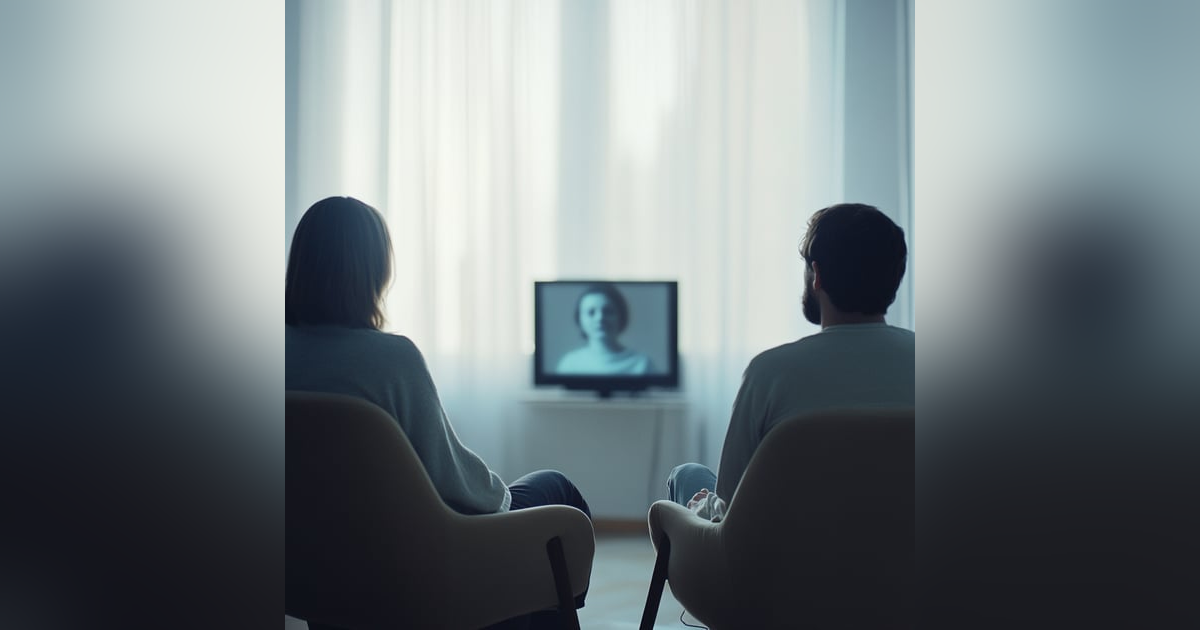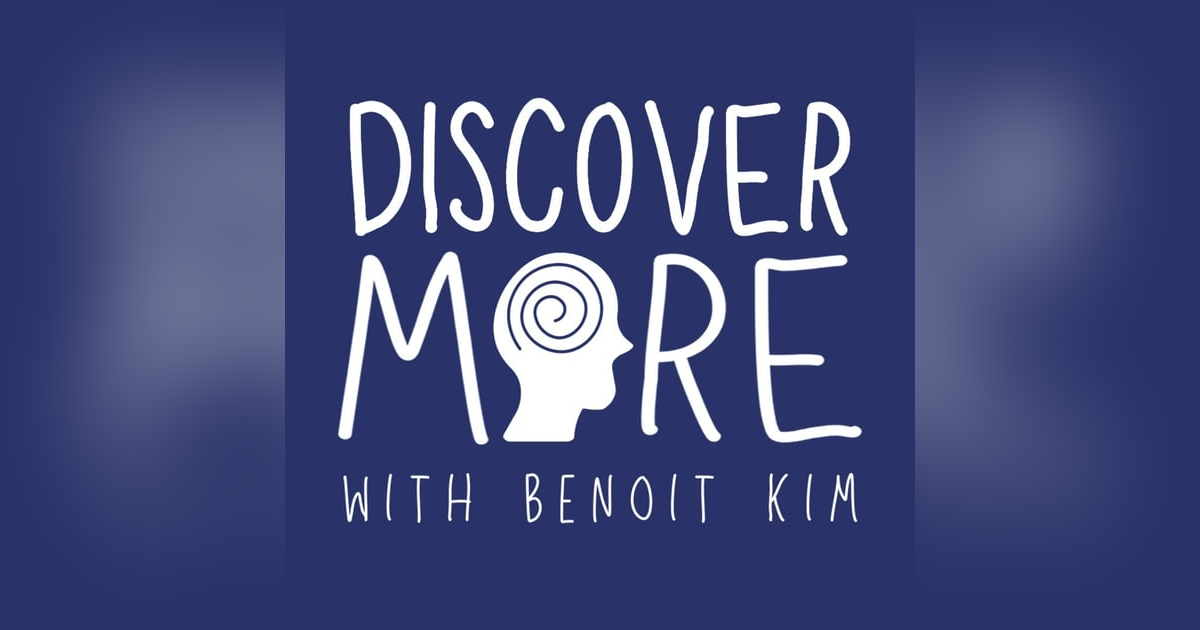#166. What Is The Mental Health Impact Of Sensationalism? - Dr. Courtney Tracy | The Truth Doctor


How truthful is the mental health media industry of Hollywood? How do we protect our mental health from media? What does borderline personality look like in adults?
Today’s conversation with a doctor of psychology and mental health media expert will explain the detriments of misinformation and sensationalism, and what we can do to safeguard our mental health in today’s media landscape.
Dr. Courtney Tracy is a clinical psychologist, licensed clinical social worker, founder of The Truth Doctor, and published author.
Expect to learn about the mental health impact of sensationalism, why mental health diagnosis can be empowering, the reality behind Borderline Personality and autism, the importance of seeking help, how to stay hopeful in seemingly hopeless situations, and much more.
Welcome to Discover More!
Let's get this started.
*
Rate The Podcast: HERE
Show Notes:
Dr. Courtney Tracy Website: HERE
Dr. Courtney Tracy TikTok: HERE
Dr. Courtney Tracy Instagram: HERE
Dr. Courtney Tracy YouTube: HERE
Dr. Courtney Tracy Podcast: HERE
*
Subscribe to YouTube: Discover More
Discover More Website: HERE
Come say hi on Instagram: HERE
*
Discover More is a top social sciences podcast for independent thinkers who appreciate the importance of mental health, psychology, and social sciences. Looking for deep thinking?
*
Listen to all full-length episodes on audio:
Apple Podcasts: HERE
Spotify: HERE
*
Thank you for Discovering More with us!
The era of headline and sensationalism. The sensationalism is everywhere. It's manipulative and it's beneficial for the person creating the sensation.
Discover More is a podcast for independent thinkers who appreciate the importance of mental health, psychology and social sciences. Today's conversation with the doctor of psychology and mental health media experts will explain the detriments of misinformation and sensationalism. What can we do practically to safeguard our mental health in Today's media landscape?
Benoit's mission statement is Human first. Human first is a reminder to simply be human. Once your whole life becomes your job, it gets very difficult to take a step back. Benoit works with high profile creators and their mental health related to their job of being a content creator or influencer.
How do you safeguard against the phenomena that a lot of people struggle with in modern America? When you're with your family and kids, your two children, you're thinking about work mentally. I think the younger generations are going to be better at this than we may be.
HBO and other popular platforms are intentionally utilizing sensational tactics to highlight mental health concepts. In the future, we have to start providing more intentional programming. Every second we spend watching media is a second that we're spending having that media impact our mental health.
In early 2020 two years ago, I started feeling burnt out. I sold my treatment center and started focusing fully on content. What I learned was how to make higher Quality content that made the same impact as spending too much time on content that needed quantity versus quality.
The happiness professor at Harvard Professor Brooklyn says happiness is a clusters of symptoms. He says it's happiness equals to wants divided by needs. Like this podcast passion project turns a business.
What I learned about myself was who I am through trauma resolution that I had been avoiding for the majority of my life. Part of why I was able to facilitate that within myself was because I was a content creator. Every clinician is undiagnosed patients unless you seek your own help.
In today's era of headline culture and sensationalism, why is truth seeking so important to Courtney? For me, I think I grew up in really hard truths. Could they have been avoided? But with my diagnoses, reality is reality, facts are facts.
Was that a conscious decision that you chose to confront, or was it just a byproduct of your circumstances? It's been a progressive, sequential willingness that has come over time.
Why aren't you afraid of sharing your diagnoses like borderline personality disorder, ADHD, and autism so openly? Whether you like it or not, they have become part of who you are. By denying any part of yourself, you're denying the whole, wholesomeness.
Borderline is misunderstood because it's scary. It's easy to judge someone with borderline personality disorder. The symptoms include out of proportion anger outbursts. A lot of Borderline individuals struggle with today's instant gratification attention.
Corny: I didn't know I was autistic until last year. He was diagnosed in 2012 with borderline personality disorder. Corny says he actually has something called twice exceptional, where he's gifted and autistic at the same time. He says many aspects of his privilege allow him to show up the way he does.
There is a fine line between using someone's diagnosis as a crutch and as a shield. Mental health is a through line is the podcast tagline. It's fascinating how you find these entry points to spotlight the power of mental health.
A friend of mine was on a reality show. He has created an advocacy organization called you can to protect the cast members and the competitors in these types of shows. He says it will allow for better quality TV when it comes to this pulse of mental health.
Courtney: What is the unseen reality of fame for you? She says she would rather have stability than fame. The catalyst for her into mental health was her sexual healing trauma resolution. She says fame can exacerbate these issues and not be a barrier to them.
My work has been with substance use and mental health throughout the continuum of care. The most impactful through line is that humans want to avoid pain. The real work is to get people to understand the human condition and moderate how they choose to handle it.
But I really do feel like we have to first acknowledge that there are things in our lives we're not happy with. And practicing what you preach and preaching what you practice sounds similar, but they're fundamentally different.
With that being said, though, you talked about families. Talked about the support system. I do want to weave into the family stuff, which is a very, very big thing in your life, especially after your second child's birth. Sure.
What ingredients allowed your husband of 19 years to stay with and support you throughout your tumultuous upbringing? Addiction. A lot of trauma, feeling, lack of self. Curiosity, perseverance. And I think he just doesn't like to lose.
Corny: We live in this crisis of mental health with loneliness. She says it starts with having someone that has. someone that is curious. Curiosity is a prerequisite to all healing. Corny: Mix that in with necessary boundaries to avoid that curiosity leading to pain.
To me, philosophy, philio means lover of wisdom. It's just a faculty of wonders. That's what philosophy for me is. But I do want to go into realities.
Can you recall any most memorable and powerful, maybe even life defining or redefining reality? These moments for me have always been heartbreaking. My realities have shifted through heartbreaking moments. Reality is so conceptual, it's so individual, and subjective, it fascinates me.
In 2020, I thought I could support both of my parents, who both have lived under the poverty line for the majority of their lives. Two weeks into him coming here, he immediately was diagnosed with multiple sclerosis. At this point he's so disabled that there won't be a new childhood to repair the old one.
Ben Wang: I've been undergoing significant father son dynamic rupture with my dad for the last two years. He says you have to learn to grow out of the shadow of your father. With borderline treatment, mindfulness and self compassion are two most effective pillars.
Dr. Right: How did having two children change your life? Courtney: I didn't know I was autistic till last year. The reflection of me untraumatized in my children has saved me. They say children make you grow up again. You grow up with your children.
Why are we judging others? Why are we inflicting pain and judgment when we're struggling with judgments and pain in our own lives? We need to stop pathologizing and criticizing humans is we are all part of this massive, trippy, crazy, heartsy, articulate flows of life. A little more self grace is very important.
Courtney: How do we find hope and sustain hope in the seemingly hopeless landscape that we live in now? She says Americans can stay away from the labeling culture. Find out about the very very intentional human first things you try to improve the human experience.
Courtney: Is there a specific content that you really want to spotlight for people to check out first? What is something that you would say to your younger self? I encourage you to be more self compassionate. Love yourself a little bit more today and choose love over fear. See you in the next week of Discover More.





